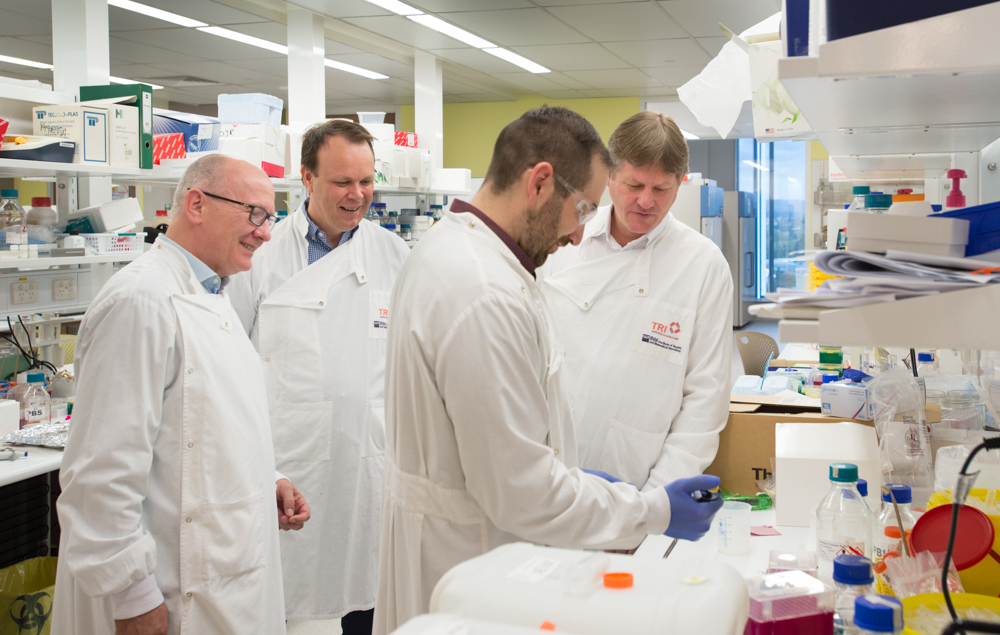The two QUT professors behind a promising anti-cancer drug candidate that will enter clinical trials next year, have now identified a new approach for personalising the care of ovarian cancer patients
The latest work by the research team of Professor Derek Richard, the scientific director of the Cancer and Ageing Research Program (CARP), and his colleague, CARP’s clinical director, Professor Ken O’Byrne, is focused on ‘PARP inhibitors’ and how they can be used to better target ovarian cancer patients – and save other women from the pain of ineffective treatment.
To support this work, CARP has received a funding commitment from Yancoal Australia of $600,000, which has been used to employ two fulltime researchers for three years.

PARP inhibitors are a relatively new class of drug therapies, which are designed to kill cancer cells, by blocking the enzymes involved in the repair of damaged DNA.
"The issue is that when clinicians prescribe PARP inhibitors, they don’t know who will respond well to the treatment and who will not. Currently, around 10 per cent of ovarian cancer patients are treated with PARP inhibitors, based on the presence of the BRCA1 or BRCA2 gene, but the therapy only works effectively in around 50 per cent of those patients," said Professor Richard.
"To address this, we have been working to identify a new biological marker. This is a protein that can be detected in cancer cells and the level of that marker tells us whether the drug is likely to be effective or not on each individual patient.
"Pre-clinical models have shown this biomarker has the potential to accurately predict those patients who will respond positively to the treatment in up to 90 per cent of cases. This would mean the use of PARP inhibitors could be directed to those patients where it has the highest odds of being successful.
"As a result, some patients who do not currently receive PARP inhibitors, could be identified as being able to benefit from the therapy and receive that targeted treatment," he said.
Professor O’Byrne, who practices as an oncologist, said it would also mean that patients who do not have the new biological marker, and therefore would not benefit from the drugs, would not be prescribed the therapy.
"This would save those women from unnecessary treatment side effects and potentially allow them to investigate other options," Professor O’Byrne said.
"Ultimately the aim is to achieve a better quality of life for ovarian cancer patients, but this work may also have the potential to help those fighting lung and breast cancer too, and that is something we will be investigating further.
"We are very fortunate to have access to world-class equipment and buildings in which to undertake our research, but those physical resources do not make medical breakthroughs. It is just as critical to have great minds and the addition of two full time researchers to our team will make a very real difference," he said.

Yancoal Australia Chief Executive Officer Reinhold Schmidt said, "We are proud to provide the funding boost required to help ensure this important research continues.
"The CARP team can now employ two dedicated cancer researchers to advance their findings and work to improve the effectiveness of cancer treatment.
"Cancer is an issue that affects all Australian communities. Sadly, the majority of our Yancoal team would know someone, be it a friend or a family member, who has been directly affected by cancer.
"With this donation, we hope we can help make a positive difference in the lives of the people who work and live in the areas we operate," Mr Schmidt said.
The announcement comes just three months after QUT bluebox signed an exclusive $5 million deal to license the development of the professors’ DKLS02 pre-clinical anti-cancer drug candidate to Brisbane-based CARP Pharmaceuticals.






